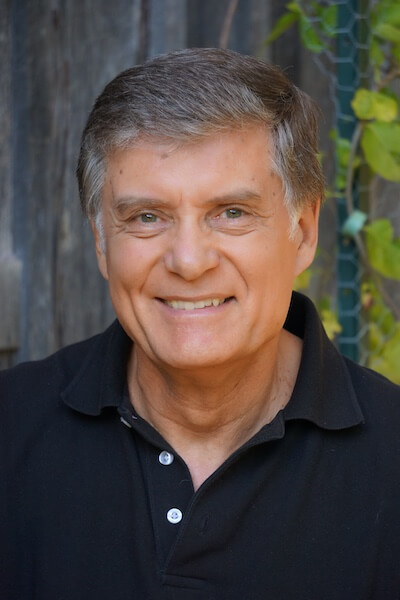Christian Executive Coaching to Deal with Burnout
- Home
- Slowly Burning On
Do You Feel Like You Have to Keep Pushing Through?

Over the years of providing Christian executive coaching to deal with burnout I’ve observed that many Christian leaders, executives, and professionals are slowly burning on.
Reluctant to address their situation, they bear the consequences and just keep going.
They wouldn’t yet say they are "burned out." But inside they fear things point in that direction if they don’t do something about the heightened stress, pressing fatigue and overload they feel.
These men and women will try to keep pushing through, no matter what. Something in their thinking "won't let things fall down” on their watch. And they continue on, slowly burning out.
Does this describe you?
- I’m feeling a greater than normal strain every day
- I know that something needs to change
- I feel I have to keep going no matter what
- This has gone on for so long
- The signs of burnout are increasing
"I might not be burned out, but I’m slowly burning on."
Here I share 10 thought patterns that might contribute to that hesitation. Don't let any one of them delay you from doing something to deal with burnout and regain productivity.
How Does a Leader Keep Slowly "Burning On?"

Slowly burning-on occupies that space in our experience somewhere between overload and burnout. It gets fed by situation and a repeating loop of self-talk:
- A rising intensity in everyday challenges. Keep pushing through.
- Being delegated additional work from outside. Keep pushing through.
- Meeting the internal expectation to deliver above and beyond. Keep pushing through.
- Having to constantly deal with stressful “people stuff.” Keep pushing through.
- Ratcheting up by your own choice. Take charge and keep pushing through.
- Executive coaching to deal with burnout isn’t top of mind. Keep pushing through.
Something Doesn't Seem to Add Up
Christian leaders may be some of earth's poorest creatures at allowing God to take care of them.
The birds allow it, animals allow it, other people allow it, but the Christian leader doesn't allow the Creator to take care of them according to the ways and means He designed. The result – abnormal stress, overload and burnout.
Why? How have mature men and women who know what God has to say about trust and renewal, gotten so far off track from the heartbeat of the Master? (Don’t think I’m only talking to you. I’m talking about us.)
Ratcheting Up Until the Leader is Overloaded

You take a committed Christian leader or professional who
loves the Lord and has high expectations of 'what God will do'. Make them a key
decision maker carrying major responsibilities. They will prove themselves
highly committed, heavily involved and willing to take on a demanding workload.
They will also, with great regularity, ratchet up.
Ratcheting up simply means you take the assignment you are sure “God has given you” (.. as the Lord has assigned to each his task. 1 Corinthians 3:5) and you add to it.
While working you also see something else worthwhile to be done. You add it to your to-do list. You see a need here and a cause to be addressed. No one else steps forward quick enough. And you do it.
Pretty soon you are doing more than the original assignment. You have 'ratcheted up.' You’re going beyond the assignment. You may begin to set yourself up for eventual burnout.
Many people have been robbed of useful service because other well-meaning Christians, often leaders, have taken the task to themselves. If it is important you can be sure God has prepared or is preparing the worker. You are NOT the solution to every need.
Resources:
Dealing with Burn-on: Further addresses burn-on in contrast to burnout, and what to do about it.
It May be Time for Christian Executive Coaching to Deal with Burnout

More often than not in the course of providing Christian Executive Coaching to deal with burnout, my clients notice they have been burning on for some time.
The situation you are now in didn’t get to be this way overnight. It unfolded across time. And, it will take some time to discern the changes that need to be made, and determine the actions that need to be taken.
Of course, actually implementing those changes will take intentional effort.
This is crucially where engaging an Executive Coach will assist you. I invite you to have an initial conversation to discuss what’s going on. From that we can craft a plan for moving forward.
Burn On - A Personal Experience

Here’s my story and the changes it fostered. You may need to take this decision as well. Apply this personal example to your own situation.
You can imagine the situation. Too often seven days a week, a few really stressful situations, significant amounts of time, all demanding spiritual and emotional energy.
We endeavored to put family first. I never thought much about stress management. I just did my job and did it well. Two events happened to make me address overload.
My Natural Inclination was to Push Through
Leaders and professionals experiencing overload can behave two major ways depending on their behavioral styles.
FIRST: Some will experience a kind of overwhelm and start shutting down in various ways.
SECOND: The second group will be determined to push
through no matter what. In their own minds, they will never be caught doing
anything less than excellent work. This of course cannot be sustained in
situations where there is just too much volume to deal with.
This is what characterized my own situation. No matter how I felt or what I had
to deal with, the work I was engaged in would be done with excellence and move
forward successfully as far as it depended on me. I held myself to a high
personal standard.
Stress is Cumulative. It Caught Up with Me

Stress is cumulative. It has a way of
catching up with you.
Two clear events happened to get me on the road to addressing my own overload.
The First Nudge
The first strong nudge came one summer day when my wife and I were on a walk together. You must understand we have enjoyed many years of wonderful marriage. In spite of that, … on that walk, in the midst of huge stress and volume of my to-do list, Alice turned to me and said, “You don’t have much time for romance anymore, do you?” That went like an arrow into my heart. Had I become so addicted to go, go, go that it had squeezed the most important things in my life?
Your family can often be the best ones to give you a
wake-up call. They may be the first to detect the overload that you haven't taken
the time to think seriously about before.
The Second Nudge
The second nudge, or more like a shove, was the onset
of something that scared me. The first time it occurred I thought I was having
a heart attack. My arms and legs were tingling, my feet had to keep moving and
my heart beat fast. The large warehouse I happened to be in began to close in
on me. I had to get out.
I phoned back to where we were living for the summer. My call alarmed Alice. I
told her I was driving to the nearest hospital. Of course, I drove right by
that hospital. Why? The symptoms had more or less stopped. Men take a lesson
here. We tend to be pretty dumb about these things.
While I was still on the road, it hit again, and worse than before. I did check
in to the next hospital up the highway, to find out eventually that it was not
a heart attack, but something caused by stress – panic attacks.
Overload, Burnout, or Burn-on, Let's Create Solutions

Was I experiencing burnout? No. But I was overloaded, that was for sure. Every day told me that. As I’ve come to understand it now, I’d say I was experiencing “burn-on.”
Burn-on is that constant state of overload when someone
just keeps pushing through. They’re paying a real price but keep going without
really addressing their situation.
This event happened a number of years ago, but it turned me into a student of
overload and burnout and an advocate for leaders and professionals experiencing
it. That's why I've allocated a major portion of my working time to Christian executive coaching to deal with burnout.
Over time I made a major shift in my attitude, one to taking care of myself and being proactive in my situation. I knew if I wasn’t in good shape, I wouldn’t be effective in leadership.
Of course, it’s a much longer story, but that gives you a picture of the turning points. Maybe some of you are there.
Today can be your moment of insight, a turning point that leads to a decision to do something about yourself, your situation and your leadership. I wish I could have spoken with "the professional me" who understood executive coaching to deal with burnout back then.
If you are interested in Christian Executive Coaching to deal with burnout, please send me a message and let's have a conversation.
Recap
On this page we have discussed:
- The reality that far too many Christian leaders, executives and senior-level professionals are “slowly burning on”
- How a leader keeps “slowly burning on”
- We don’t seem to allow God to take care of us, even though He wishes to
- How many Christian leaders engage in “ratcheting up”
- Asking yourself if it’s time to work with me to deal with burnout or burn-on
- I shared my personal experience with burn-on so you could know THERE IS HOPE. Christian executive coaching to deal with burnout and burn-on brings breakthrough and solutions.
- Take the time to assess yourself and your situation and do something about it
Contact me here Privacy Policy
© G.E.Wood and Associates. All Rights Reserved in all media.
G.E. Wood and Associates is an international coaching firm registered in Ontario, Canada
142 Pratt Crescent, Gravenhurst, Ontario, Canada, P1P 1P5